 For younger people looking at betting nowadays everything seems so simple. There’s hardly anything that they can’t place a wager on if it takes their fancy. It’s even got to the point that you can bet on computer games being played by people you’ve never even met before (known as eSports), such is the desire of bookmakers to cover all their bases.
For younger people looking at betting nowadays everything seems so simple. There’s hardly anything that they can’t place a wager on if it takes their fancy. It’s even got to the point that you can bet on computer games being played by people you’ve never even met before (known as eSports), such is the desire of bookmakers to cover all their bases.
The development in technology has meant that bettors can be sat in a restaurant with their family and simultaneously be having a flutter on which team will be the next to win a throw-in or have a player sent off. The changes in how we bet and what we bet on have taken the industry to a whole new level in recent times.
With that in mind, it’s difficult for the latest generation of punters to understand just how revolutionary the Football Pools was when it was first introduced nearly one hundred years ago. At the time the only legal betting that people knew about took place on racecourses and was exclusively for horse racing events. Betting on football in anything other than a backstreet, dodgy way or by having a friendly wager with a mate was simply unheard of.
On this page we’ll look to tell you about the history of the Football Pools, including how it started in the first place and how it developed over the years.

Play The Football Pools Online

Did you know you can still play the footy pools online with more coupons to choose from than ever before. You can play original coupons such as classic pools and spot the ball but also more modern coupons such as ‘Soccer 6’, ‘Premier League 10’, ‘Jackpot 12’ and ‘Goal Rush’.
There are also sign up offers available to claim along with promotions for existing customers that they didn’t have when it was it paper entry. You still need to be over 18 to play, terms and conditons and eligibility criteria will apply.
The Origins and History Of The Football Pools
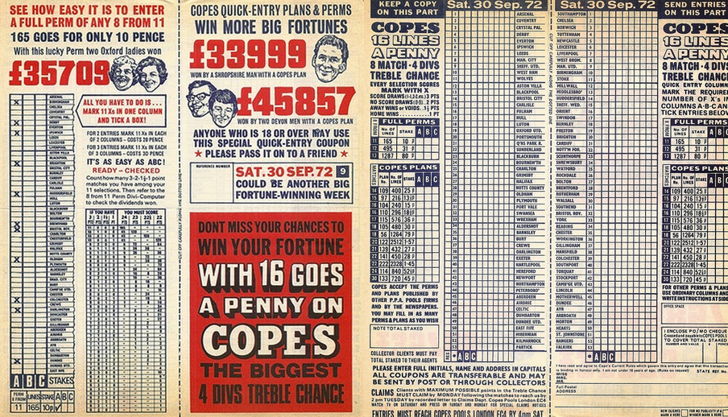
These days most people associate the origins of the Football Pools with Littlewoods, the Liverpool-based company founded by John Moores. It’s certainly true that Moores is the man who popularised it, but what not many people know is that the game itself was actually invented by a man named John Jervis Barnard. From Birmingham, Barnard realised that most of his friends had a growing passion for both football and placing bets. Back then football was still very much in its embryonic stage of development and was nothing like the behemoth that it is today. Betting, as mentioned in the introduction, was only legal on horse racing courses.
Barnard thought that he could make some money by combining these two past times, coming up with a manner of betting on the outcome of football matches that saw victorious punters claim their winnings from the ‘pool’ of money collected; hence where the name of this new format of gambling came from. He figured that if he took ten percent of the pot for himself then that would cover his ‘management costs’ and give him a tidy income. By the time he met John Moores he was ready to give up on his idea, such was the extent to which it had been unsuccessful. Moores, on the other hand, saw the potential in it and took a coupon back to Manchester, where he worked.
Along with two of his friends, Colin Askham and Bill Hughes, Moores worked as a messenger boy and the three of them were constantly looking for money making schemes to get them out of the Post Office. When Moores returned with the betting coupon and explained the possibilities to them his two friends agreed that this was the opportunity that they had been waiting for. They each invested £50 to get the scheme off the ground, which was a large amount of money at the time. They bought themselves a cheap printing press and rented a small office in Church Street in the city of Liverpool. They printed four thousand coupons on the first run and handed them out outside Manchester United’s ground Old Trafford on a Saturday afternoon in the winter of 1923. The Football Pools was born.
Littlewoods
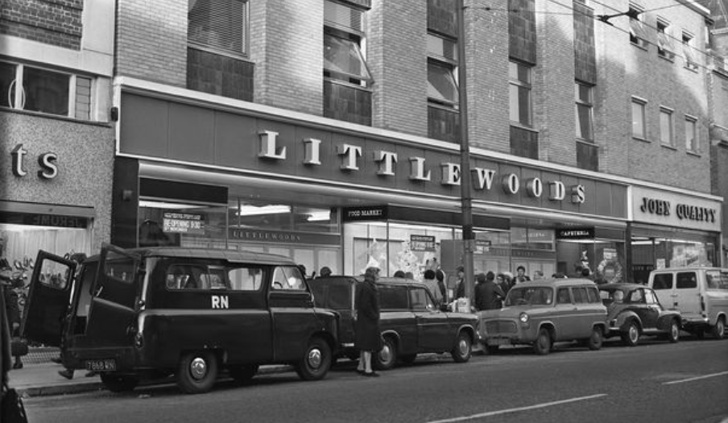
The name Littlewoods came about because the three friends who formed it worked for the Commercial Cable Company and outside employment of any kind was not allowed. That’s why they decided against calling the new venture after one of their own surnames, given the increased likelihood of them being found out if they did so. Instead, Askham told them about how he took the name of the aunt who raised him after he was orphaned as a child, but that his birth name was Colin Henry Littlewood. From that moment forth the new business was named Littlewoods Pools; a name that would later become part of a business empire.
Back to that cold afternoon outside Old Trafford and the three men were dismayed to discover just thirty-five of their four thousand coupons were returned. The bets placed totalled just four pounds, seven shillings and sixpence, meaning that the ten percent that the businessmen took out of the pot didn’t even cover their expenses. Rather than panic and throw in the towel the three men decided to double down, printing ten thousand coupons and taking them to Hull in order to distribute them before an important game. If they were disappointed with the thirty-five coupons out of ten thousand that were returned at Old Trafford then it’s not difficult to imagine how they’d have felt when just one was returned at Hull.
The project continued to lose money all the way up to halfway through the 1924-1925 season, leaving the three partners to consider whether it time to abandon the project before it had truly begun. They had ploughed two hundred pounds each into the venture and Hughes and Askham felt that it was time to call it a day. They were surprised when Moores not only disagreed with them but offered to pay them each the £200 they’d invested up to that point in order to buy their shares in the company from them. Things might have been different, but for his wife saying to him, “I would rather be married to a man who is haunted by failure rather than one haunted by regret”. Hughes and Askham, realising why the project had failed for Barnard when he’d tried it in Birmingham, accepted Moores’s offer.
It would turn out to be a decision that the two men would regret, with the Littlewoods Pools eventually taking off to such an extent that John Moores became a millionaire. Quite why it suddenly clicked with the football watching public is anybody’s guess, though it’s likely that the increased frustration of football supporters being unable to bet on the sport that they loved will have played a part. As always with such ventures, people are naturally suspicious of something new but would presumably have been won over once they realised that it was a genuine thing and it was being run by people that the continued to see around football grounds. Moores himself was prosecuted and convicted under the Ready Money Betting Act but he appealed, winning his case because the Pools only accepted postal orders and not cash.
Rivals: Vernons and Zetters

Littlewoods remained the foremost company when it came to the Football Pools, but such was the success of John Moores’s venture that other companies soon began to spring up as rivals, with most of them doing so in Liverpool. The first company to offer something different was Vernons, which was founded in 1925. It was another eight years before the next large Pools company came together with the launch of Zetters.
All of them shut down when the Second World War broke out in 1939 and Littlewoods handed over most of their properties to the war effort. If those that opposed the existence of the Football Pools thought that would be the end of the matter they would be sorely disappointed; when things started back up again after the end of the war the prizes were three times higher than before.
The Vernons brand is still going to this day, now owned by the Bettson group, they run a small sports betting, casino and bingo website. These days the well known name is nothing to do with the pools however, you can read more about the modern Vernons online betting site in our bookmaker reviews.
How To Play The Football Pools
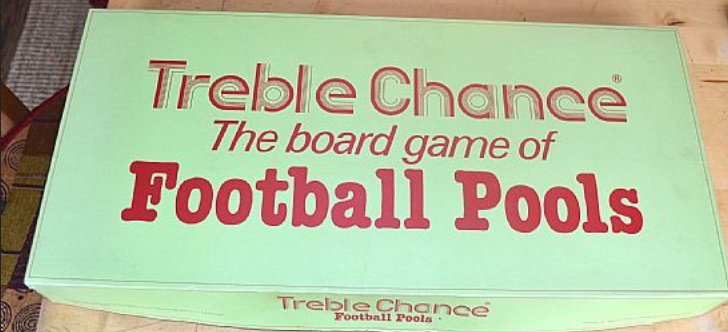
It’s more than likely that a good portion of the people reading this won’t know how the Football Pools was played. Despite the fact that it avoided coming under the jurisdiction of the Betting, Gaming and Lotteries Act of 1963 by claiming to be a game of skill rather than fortune, it was very much the latter.
There were different games played over the years, though the most successful and popular of these was known as the Treble Chance.
Players would pick up a coupon from someone outside the ground or, as was most common, from a ‘Pools Man’ who would call into people’s homes through the week. The coupon would have a list of fixtures due to take place at the weekend and you had to pick eight fixtures that would end in a score draw.
If they did so then you would be awarded three points, whilst if they ended in a non-score draw you would get two points. If the match was won by one of the sides taking part in it then you would get one point. The aim was to get the highest number of points possible, with those doing so winning a portion of the ‘Pool’ of winnings.
What Happens When Matches Were Postponed?
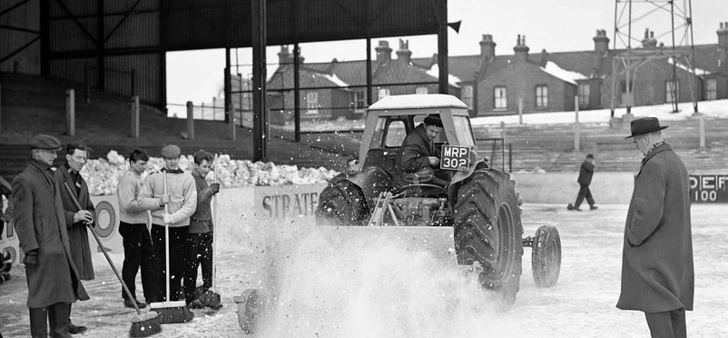
In 1963 the winter was particularly bitter. It was so bad, in fact, that all matches were suspended for three weeks in a row. Rather than abandon the Pools, which would have seen companies lose money and resulted in disappointment for those that played the game, a set of adjudicators was convened.
Known as The Pools Panel, it consisted of former footballers and and ex-referee and their job was to decide between them which way they thought the match was going to go.
Some of the members of the panel over the years included the likes of Tom Finney, Gordon Banks and Roger Hunt. They would meet in a hotel in London in a private session every weekend and decide upon the outcome of postponed matches.
When the football results were read out on Grandstand’s Final Score segment the announcer would also inform the watching public of the panel’s decision by saying something like “Away win”.
Famous Football Pools Wins
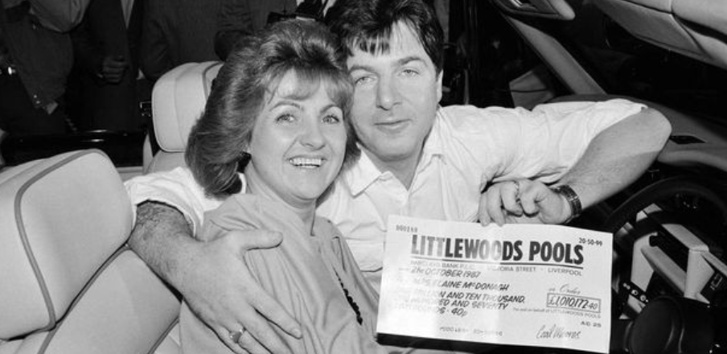
There have been a number of well-known Pools wins over the years. 1950 is typically seen as a watershed moment for the game, when Mrs E Knowlson of Manchester became the first person to win £100,000. Just three years later and that total had doubled when Nellie McGrail from Stockport won more than £200,000. In 1961 a miner from Castleford by the name of Keith Nicholson and his wife Viv won £152,000. That might not seem like much, but it’s about £3 million in today’s money. They made the papers when Viv was asked what she was going to do with the money and she replied, “Spend, spend, spend!”
The first half a million pound win was paid out for Mr K Grimes of Hampshire in 1972. A retired dinner lady named Nancy Walpole won £760,000 in 1983, whilst six years later a syndicate of sixteen electricians from North Tyneside shared just shy of £700,000. That was nothing when compared to the 1986 win of a group of nurses from Wiltshire who became the first to win more than a million on the Football Pools. Things hadn’t even died off by the start of the 1990s, with a Londoner picking up over two million from a stake of just 54 pence. Even in 1994, the year that is generally considered by the one that gave the Pools a mortal wound, a syndicate from a pub in Manchester won just shy of three million.
Not all of the stories were happy ones, of course. Joe Bosher from Tyneside thought that he’d won the jackpot when his selections came in. A friend lent him £50 to celebrate and he hit the town that night, only to head home and find his wife crying her eyes out. It turned out that Joe had given the coupon to his son Joseph to put on for him, but Joseph chose to bin the coupon and spend the money on sweets for himself and his mates instead. Such stories were reasonably common, with people picking number fifteen instead of number fourteen and ending up with £1200 instead of £800,000. Yet still the Pools remained popular, thanks in no small part to the fact that it allowed working class people to dream of being rich, simply by picking a few numbers.
Though it was ostensibly a game of skill, most players simply picked the matches that aligned with birthdays or anniversaries. Some would choose their house number or their age, marking the coupons in the same way every week regardless of the matches that were playing. It was essentially similar to picking an accumulator based on nothing but guess work and hoping that it would pay off. When it was at its most popular, around ten million people played the Pools on a weekly basis, which was about a third of the adult population at the time. Given its success and immense popularity, then, the obvious question is ‘Why did it stop?’
The Decline in Popularity of the Football Pools
The National Lottery
When The National Lottery arrived in 1994 it signalled an end in the popularity of the Football Pools. Now people could win a fixed prize of millions of pounds by guessing six numbers, rather than relying on football players to do them a favour and score a particular number of goals in a given set of games. The chances might not have been all that much different in reality, but to most people the lottery seemed like a much easier option for winning a life-changing amount of money.
There was also the fact that the lottery didn’t have any connection to football, meaning that those who didn’t enjoy the sport wouldn’t feel so left out. The fact that the majority of players were simply guessing numbers in the same way that lottery players had to do was irrelevant – there was no link to sport and therefore people that didn’t enjoy the connection could no join in. The National Lottery’s choice to introduce a ‘Lucky Dip’ option made things even easier for punters to have a go even if they didn’t really know what they were doing or wanted to avoid getting stuck in the trap of playing the same numbers every week. The Football Pools was on its way out and the lottery was what was replacing it.
Online Betting
If the arrival of the National Lottery put one nail in the coffin of the Football Pools then the explosion of people betting online came close to smashing in another. Though it was only in its early stages in the middle of the 1990s, it became more and more popular as the millennium approached. Some bookies were quicker off the mark than others, but by the early 2000s the majority of companies had jumped on board with the new craze of placing bets online. Obviously they only tend to do something when the market is already there, so it’s no surprise that there were plenty of punters happy to take advantage of this new way to place bets.
In comparison to the ability to jump on a computer and place a bet on an event taking place across the other side of the country, playing the Football Pools seemed remarkably quaint. The desire to do so decreased with every passing year and it became something that was more for those looking to engage in a bit of nostalgia than serious bettors. Little wonder, of course. A reasonably large accumulator would pay out more than the majority of small Pools wins, whilst the National Lottery’s move online also meant that people had access to numerous ways to bet without the need to turn to the Football Pools to satisfy them.
Can You Still Play The Football Pools in the UK?

Somewhat remarkably, neither the National Lottery nor the expansion of bookmakers into the online market actually dealt the Football Pools a fatal blow. Sportech Plc, a company that had made its name specialising in hard disk drives under the moniker of Rodime, decided to get into the online gambling business and paid £161 million for Littlewoods Pools in 2000. It re-branded as Littlewoods Gaming and in 2002 they also bought Zetters. Five years later they got their hands on Vernons and announced a plan to re-launch the entire enterprise in an online only manner the following year under the name of The New Football Pools.
The re-brand was a success, with thousands of players getting involved on a regular basis. It could never re-gain the popularity that it had enjoyed when it was practically the only way of betting on football in the United Kingdom, but it still managed to get in the headlines on a regular basis. The Pools enjoyed a big year in 2010, for example. Firstly fifteen Pools players shared a £4 million jackpot in one of the biggest weekend’s in the competition’s history. Then later in the year fifteen punters shared three million between them. More was to come, though, with Michael Elliott achieving the biggest ever individual win on the pools when he scooped more than three million all to himself thanks to score draws in Spain, Scotland and England.
Before the lottery was introduced in 1994 the Pools attracted around ten million players per week. By 2007 this had dropped to around 700,000, but the players tended to be loyal and stuck with the Pools even when other games and ways of playing were available. It seems that the enduring popularity of the Football Pools will never truly die, with Sportech selling it to a private equity firm named OpCapita for eighty-three million pound. A spokesperson for OpCapita confirmed the company hoped to continue to grow the Pools after Sportech had stabilised it, saying, “[The Football Pools has a] loyal customer base, providing a solid foundation on which to build, through new distribution channels, additional new games and fresh marketing”.
You can still play the classic football pools online, picking 10 draws from a selection of 49 teams. As there are no physical coupons to manage anymore however you can also play a whole host of new coupons such as goal rush, soccer 6, premier 10, jackpot 12 and many more. In 2021 The Pools launched a betting site with a full sportsbook and casino but with all the classic pools games still there. This represents a new era for The Pools who have now moved into the mainstream but have retained the products that made them famous. You can even claim an introductory bonus when you sign up (see the football pools site for full details about this).
There is not need to worry about the jackpots being too small either, the classic pools still pays out a top prize of £3,000,000 and costs £1 to play.
Football Pools In Other Countries
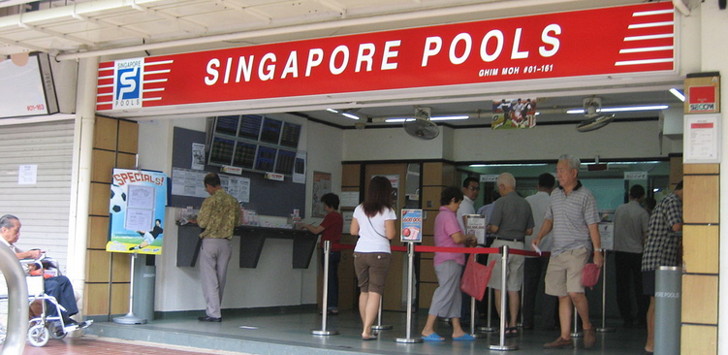
As with so many things, including modern football itself, England might have invented the Pools but that doesn’t mean it’s exclusive to these shores. In Continental Europe the name of similar games is ‘Toto’, taken from the totalisator machines that are used to work out the mathematics of the parimutuel style bets involved. In the UK that’s where The Tote derives its name from, though it’s more commonly associated with horse racing than any other sport over here.
The style of Pools-type betting is different in Europe, too. It has more in common with what we would call ‘Match Betting’ than the way Pools betting worked in the UK. Players decide whether the match will end in a draw, an away win or a victory for the home team across thirteen different games. They usually indicate their decision by marking a 1, for a home win, a 2, for an away win, or an X, for a draw, on the coupon. The latter can sometimes be indicated by an O or an N instead.
If a user manages to correctly predict the outcome of all thirteen matches then they win the biggest prize. Occasionally smaller prizes are given out for players that get some but not all of their predictions correct. It is essentially a thirteen-fold accumulator with a significantly bigger prize at the end than most thirteen-fold accas would normally have associated with them. If you’d like an interesting fact to take away with you from this piece then here it is: the Intertoto Cup was originally founded by companies that ran Football Pools competitions in Europe in order to provide matches for their coupons during the summer months when football was quieter. It ran from 1961 until it was aborted in 2008.